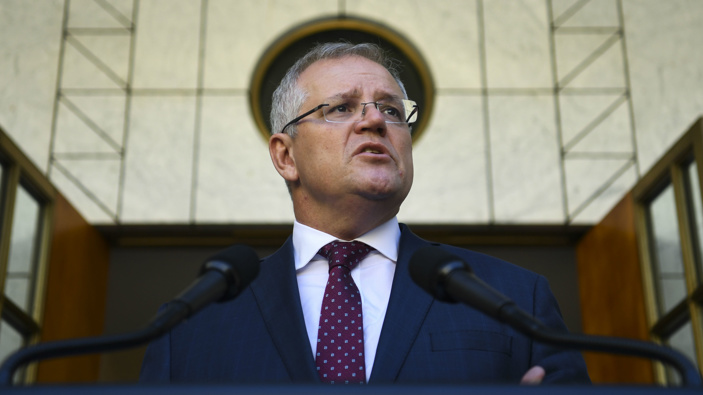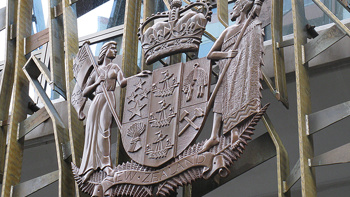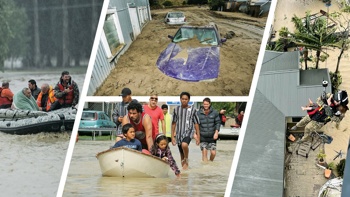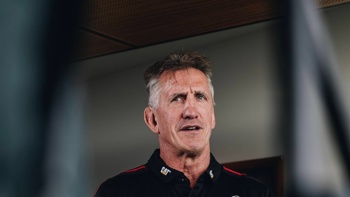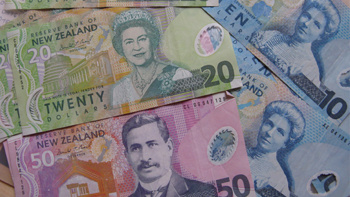Australia’s mandatory hotel quarantine scheme could be scrapped in favour of a new “triage” system that allows some international travellers to quarantine at home under strict conditions just like actress Nicole Kidman.
Prime Minister Scott Morrison confirmed the proposal was under active consideration today after damning evidence emerged from an inquiry into the quarantine scheme’s operations in Melbourne.
It also follows widespread controversy after Hollywood stars and celebrities including Nicole Kidman, Keith Urban and Dannii Minogue were allowed to “quarantine” in luxury hotels or at home while other travellers were locked in budget hotels for 14 days.
The celebrities paid for their own security teams to ensure they stayed at their luxury homes in preparation for filming TV programs and films.
However, the “triage” proposal raised at the inquiry does not involve travellers being allowed to simply go home, but to attend a medical hotel where they could be tested and assessed where they had travelled.
If it was deemed appropriate by doctors, the travellers would then be allowed to complete the 14-day quarantine in some cases at home or elsewhere.
Speaking at a press conference in Canberra, Mr Morrison said it was an option being considered by the peak COVID-10 medical expert panel The Australian Health Protection Principal Committee (AHPPC).
“Now, I think home quarantine can play a role in the future and it’s something that is being considered by the AHPPC and particularly as we move beyond the phase we’re in now,’’ the Prime Minister said.
“Our borders will open up at some point to safe locations whether it be New Zealand or parts of the Pacific or places like South Korea or Japan or countries that have had, I think, a much higher rate of success, then there are opportunities to look at those alternative methods, a triaging if you like.
“And many countries do this. Denmark operates on a traffic light system which goes along those sorts of lines. In Greece, they have an algorithm which triages people based on where they’ve come from and where they’ve been and that quantifies the risk.
“At the end of the day, the answer to your question is really how you’re going to manage risk and how you’re going to identify it and then apply the right solution to the risk that presents and I think as time goes on, we will need a more flexible approach that gives us more options for managing this, so I think that is something that is under active consideration and when it comes in, that will obviously be determined principally by the health advice that can provide a green light to those sorts of options once again but I’m hopeful it’s something we can move to.”
Mr Morrison noted that in the early days of the pandemic the Australians returning from Wuhan were very diligent in quarantining at home.
“In relation to issues of home quarantine, if we recall back in February and March of this year, that’s how it was working and I’ve got to say particularly among the Chinese Australian community, where the risk of greatest, where people were returning from mainland China and even Wuhan at one point, that home quarantine was followed incredibly assiduously by our Chinese Community,’’ Mr Morrison said.
“And that, as I’ve said on many occasions, proved absolutely vital in Australia’s success in managing the impact of that first wave.”
Mr Morrison also defended the tight time frame in which public servants were forced to deliver the scheme.
The inquiry heard that after the Prime Minister announced the scheme on March 27 in Canberra the states had less than 48 hours to find the hotels, the security and the health professionals to run the scheme.
“First of all, I remember the National Cabinet meeting very well. It was actually the states and territories that were most urgent in moving forward and they made the recommendation to move so quickly to establish hotel quarantine and we supported that,’’ Mr Morrison said.
“That was a, quite a long discussion and the states were keen to move forward and get this in place so, that was a genuine decision then by the national Cabinet at the initiation of the states and territories to move as quickly as they did.
“I welcomed the fact that they were so keen to move so quickly and get those quarantine arrangements in place. In all other states and territories, I think the experience has been quite different to Victoria, and that is a great shame in Victoria.”
While controversy has arisen in relation to the Morrison Government’s offer of Australian Defence Force support for the scheme, the inquiry was told in closing submissions that it could not find on the evidence before it that the ADF should have been used or make adverse decisions in relation to the decision not to use the military.
Victorian Premier Dan Andrews had previously denied he was offered significant ADF support before it emerged that the offer was made to his departmental chief Chris Eccles but he never passed it on.
“It was taken up by most states, not by some, and that was a decision for the states and territories, so how best that to be done was a matter for those states and territories to determine and so I will leave it to the inquiry to make their own recommendations,’’ Mr Morrison said.
Take your Radio, Podcasts and Music with you

